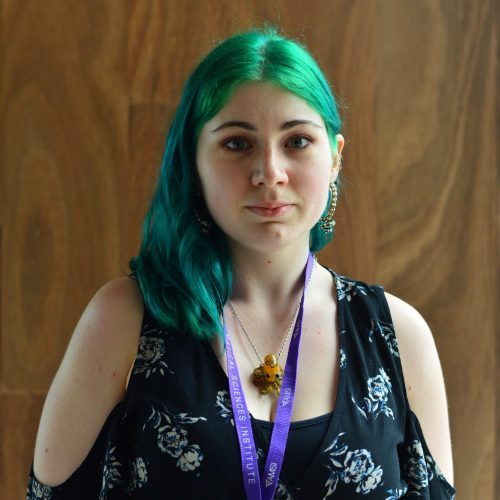
Brooke Whitelaw
James Cook University
Brooke Whitelaw is originally from Melbourne where she completed a Bachelor of Wildlife Conservation Biology with First class honours at La Trobe University in 2015. Her Research Project focused on the proteins within the posterior salivary glands (the venom producing gland of octopods) of the southern blue-ringed octopus (Hapalochlaena maculosa) and the southern sand octopus (Octopus kaurna). Following graduation she worked as a Research Assistant in Jan Strugnell’s lab at La Trobe University working on the population genetics of Victorian yellow tailed kingfish.
At the end of February 2017 Brooke moved to Townsville where she is currently a PhD Candidate at James Cook University. Her PhD project follows on from her previous work investigating octopus venom and toxicity and focuses on the Blue-ringed octopus genus (Hapalochlaena). Her current interests include the delineation of the Hapalochlaena genus, understanding octopod venom evolution through comparative genomics and genetic linkage mapping techniques and the origin of tetrodotoxin in Hapalochlaena and its distribution within and between species.
Can you give me a quick overview of the type of mathematics you are studying and its potential impacts for the broader community
My research relies on predictive models for genome annotation.
How important was receiving a CHOOSEMATHS grant in terms of your ability to attend and fully participate in the AMSI BioInfoSummer 2017 sessions throughout the week?
The grant provided was integral for attaining flights to attend the conference.
How important are initiatives such as the CHOOSEMATHS Grants in terms of fostering the participation and achievement of women in mathematics, particularly in terms of access to networking opportunities and further training opportunities?
The networking lunch provided a relaxed environment for women throughout different fields of mathematical research and different stages within their careers to freely communicate and form connections.
In what ways has the experience impacted your maths studies? Has it influenced the direction of your research?
This experience has motivated me to seek more education regarding my bioinformatics skills.
What was the most valuable part of AMSI BioInfoSummer 2017 for you in terms of furthering your career in mathematical sciences?
I found the CHOOSEMATHS lunch and careers panel to be the most influential and has motivated me to bolster my skills and maintain more connections within mathematical science fields.
A presentation on the AMSI Intern program was included as part of the Careers Session. One of the aims of the AMSI Intern program is to maximise employability and help prepare research graduates to drive industry/private sector research. Are you hoping to work with industry? How important is this experience for researchers? Particularly in terms of offering career flexibility for women?
I was particularly interested in the AMSI intern program and appreciated the opportunity to understand the program better both through the presentation and by asking question after.
The CHOOSEMATHS Grants are part of a broader program being delivered by AMSI Schools with support from BHP Billiton to turn the tide on Australia’s maths deficit and strengthen maths education and participation of women across the discipline. What do you see as the big challenges facing maths in Australia, particularly for women?
One of the major challenges is the encouragement of women in secondary education to pursue maths with their studies.
Did you always want to pursue a career in maths? Were you encouraged to study these subjects at school? Do any particular mentors come to mind? Any outstanding teachers?
I was never encouraged to pursue maths and found it to be a weaker subject of mine, only through my higher education (bachelors, honours and PhD) have I realised the importance of mathematics in my career.
Where do you see yourself in five or ten years time?
Still in some form of research or industry working with large datasets and improving my bioinformatics skills.
